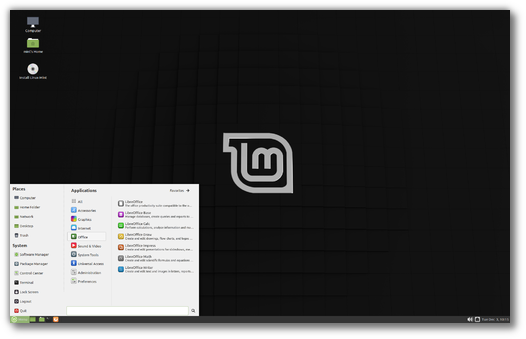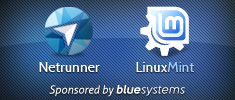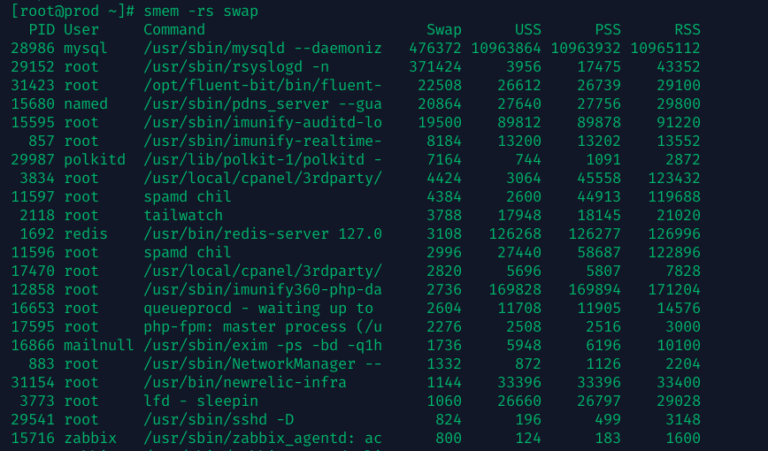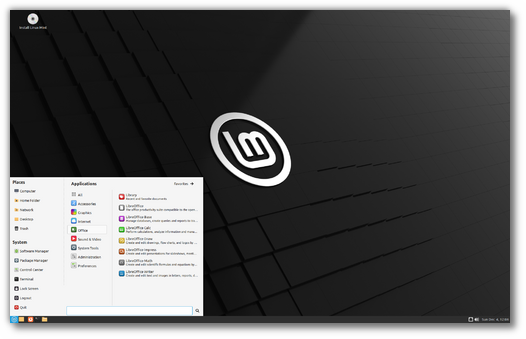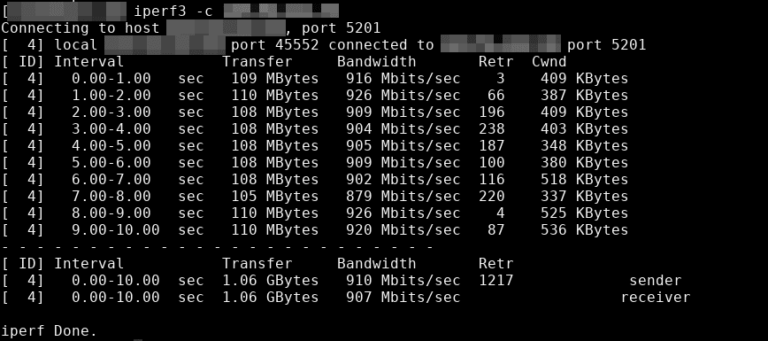This article examines APM and observability solutions and tools. I’ve also included several quotes collected from observability companies who offer easy access to their platforms, and composed a list below of noteworthy observability solutions.
I encourage observability providers to extend free and open access to their platforms and software, beyond free trials and without requiring any purchase or commitment. Free access, free tools and open-source observability software allow potential customers to easily compare and narrow down what works best for them.
Table of Contents
Organizations that adjust to allow open-source, free-engagement and free-tiers of service, will better position their platforms in 2024 and beyond to emerge as observability leaders.
Contents
The observability market is fast-evolving and becoming more complex to meet the requirements of increasingly complicated systems and software. It is essential, then, that those new to observability and all that it encompasses, can explore, learn, and experiment with the various technologies, tools, and providers available to choose from.

This approach empowers customers to match with the most suitable platform(s) for application performance metrics, traces, logs, and so on. In light of recent events, free and open also add the potential for enhanced software and infrastructure security.
Previously, I asked 12 APM companies about the future of APM, and more recently, 20 leading companies shared how COVID-19 is accelerating the future of APM. These articles covered the expansion of APM into observability and the increasing importance of both practices. In true 2020 fashion, many top APM organizations have almost overnight augmented APM into observability.
What is APM?
Application Performance Monitoring (or APM) refers to monitoring and managing the performance and availability of software applications. This is typically accomplished by using APM software to monitor applications and the underlying infrastructure. With APM, we can gather performance metrics data, such as error rates, slow requests, system resource usage, response times, and so on, to aid in application performance optimization. APM is essentially a subset of observability.
Observability defined
Observability helps developers find what’s slow, what’s broken, and what can be done to improve the performance of complex multi-layered architectures.
Now that infrastructure, software and applications are becoming exponentially more complex, our ability to see and especially predict what’s going to break has never been more important.
In 2020, I reached out to New Relic’s former Senior Vice President of Marketing, Tristan Bishop, to discuss the company’s monitoring. Part of his response was, “…we don’t consider ourselves an APM company”. See How New Relic went from being an APM company to an observability platform.
In this vein, I’d like to draw your attention to a massive ongoing battle between competitors in the observability space. Organizations are still trying to define observability, or rather, what aspects fall under its umbrella.
In 2020, just as one company published its observability definition, another would then publish theirs.
So, what is observability? Well, rather than adding to the many different published definitions, I’ll point you to a few articles and pages recently published (all within the past six months) by some of the organizations defining the future of observability:
9 Companies offering Free-Tier plans and other Free Observability Solutions.
Those searching for better observability should have the opportunity to compare and make use of the full range of solutions, whether free or paid. For example, many of the companies who responded below offer free-tier plans which allow access to most, or in some cases all, platform functionalities and features.
Here’s how some of these observability and monitoring organizations responded when asked to… share with readers what they can make use of and experience free of cost.
(The following quotes were collected between November 9th and December 1st, 2020)

Datadog is a SaaS-based monitoring and security platform that includes infrastructure monitoring, application performance monitoring, user experience monitoring, and more. Our intent with our free offerings is to provide an introduction to the platform for students, early startups, and personal use.
To that end, we offer free Pro accounts for students, and startups can join our Datadog for Startups program for free access as well.
On top of that, anyone can start a free two-week trial of the entire platform, or use the free tier for infrastructure monitoring on five or fewer hosts indefinitely. The free tier offers 15-second metric granularity, 400+ out-of-the-box integrations for popular technologies, and no caps on data volume or users. While the free tier can stand on its own, a paid account will allow you to send custom metrics, retain metrics for 15 months, and jump from a metric spike to related logs or traces while staying in the platform.
If you’re interested in learning more about monitoring best practices, we offer courses free of charge at learn.datadoghq.com, which cover topics like Kubernetes monitoring, how to build better dashboards, and how to work with SLOs. We also regularly post in-depth articles on how to monitor particular technologies, regardless of whether you’re using Datadog or not, on our blog, The Monitor. Recent topics include key metrics for VMWare vSphere, Istio, Lambda, and OpenShift.
If you’d rather get your hands dirty with development, you can also check out our GitHub page, which includes published open-source projects like our agent and DogStatsD. If you do end up working on your own integration or a new version of the agent, you can contact partners@datadog.com to list it on our Marketplace and sell it to other Datadog users with no program or initiation fees.
– – – –
Michael Gerstenhaber
Director of Product Management
Datadog

Lumigo is a serverless monitoring and debugging platform. Our goal is to save developers time by shortening the cycle from issue discovery to fix. We do this with our deep distributed tracing of all AWS managed services, and by correlating the relevant data so you don’t have to go around chasing for it with tedious and repetitive manual work. And everything is searchable in a super-intuitive way.
In addition to the ease of finding and fixing problems, developers love that Lumigo is so easy to set up. It literally takes 4 minutes and 4 clicks, with no code changes or configuration.
Lumigo offers the most generous free tier in the industry: 1M invocations and 500K traced invocations (when you enter the promo code Hayden500). This free tier has no functional limitations. We want to make it easy for developers during the dev phase or when it’s still a small project, and only pay when Lumigo brings real commercial value. You can sign up for your free account at https://platform.lumigo.io/signup.
Lumigo has also shared with the serverless community the free, open-source Lumigo CLI tool, a “Swiss army knife” for various AWS serverless-related tasks, such as analyze-lambda-cold-starts, replay-sqs-dlq, and powertune-lambda. You can get it on npm.
—-
Erez Berkner
Co-founder and CEO
Lumigo

“Organizations are increasingly adopting a complex ecosystem of microservices and containers spread across distributed environments, to quickly launch applications and meet market demands. As these systems increase in complexity, the challenges of understanding, debugging, and optimizing them are also growing exponentially.
DevOps and IT teams need to look for full-stack observability solutions that provide granular insights into the behaviour of systems along with rich context, to ensure that applications are equipped to maintain service delivery and avoid performance bottlenecks. They need to proactively monitor, debug, and tune application and infrastructure performance, and in turn, deliver better end-user experiences.
With advanced observability tooling in place, businesses can be confident of proactively noticing and catching bugs after code is deployed to production, even if they follow a mature DevOps process that involves frequent code changes.
Organizations can easily get started with observability in a small dev or test environment using the free version of ManageEngine Applications Manager. They can then easily transition to a premium package once they are ready to expand and move into production.”
—-
Sylvester Jayan P R
ManageEngine

DevOps teams across verticals need tools that will help them in troubleshooting the various issues that they may face on a day to day basis. These issues can occur in different areas such as network infrastructure, applications, web design etc.
At Site24x7, we have developed over 60 free tools which will aid the DevOps teams in troubleshooting issues effectively.
Some of the free tools we provide for efficient troubleshooting are:
- Domain tools that check the availability and performance of websites, DNS, TCP service etc. from over 110 locations worldwide.
- Website security tools that help to check whether any of your assets are blacklisted.
- AWS Designer tool that helps in designing and visualizing your AWS infrastructure.
- Developer tools that help in compressing JS, formatting JSON/XML etc.
For our full list of free tools, click here.
—-
Srinivasa Raghavan
Director of Product Management
Site24x7

“SolarWinds Believes observability is about understanding the complete state of your application and infrastructure environment. Developers and support personnel must have comprehensive and consistent infrastructure and application performance metrics, visibility into application performance down to the line of code, the ability to trace service relationships, and a comprehensive view into related logs.
With their integrated APM experience, SolarWinds® AppOptics™ and Loggly® deliver affordable, easy to use, and comprehensive observability across custom applications and their supporting infrastructure. The ability to immediately view specific log entries associated with given traces provides full-stack observability for developers to understand everything affecting the applications they’re developing—helping ensure optimal performance when applications “go live.” The free plans are designed so developers can test the benefits of complete observability before committing to a solution.
SolarWinds AppOptics Dev Edition is a free, full-function APM tool for testing and troubleshooting application performance before moving into production, with the same capabilities as SolarWinds AppOptics. Intended for pre-production use by application developers, AppOptics Dev Edition delivers comprehensive observability into infrastructure and application metrics, code profiling, and tracing across services, hosts, and containers for proactive application performance troubleshooting pre-production. All functionality of paid AppOptics plans is available, with limits on the quantity of metrics, hosts, and containers visible.
Sharing the same user experience as AppOptics, SolarWinds Loggly Lite is a free, comprehensive log aggregation, management, and search solution delivering application developers powerful log aggregation, analysis, and search tightly integrated with application and infrastructure performance metrics and traces. Loggly Lite is limited in terms of production features (e.g., no alerting, log archival, etc.) and duration of log retention (7 days) but is targeted at developers and is easily upgradeable to a paid plan with additional capabilities. Initial 30-day trials are full-function and automatically revert to Loggly Lite if a paid plan isn’t purchased.
In addition to free observability tools, SolarWinds offers several additional free tools for IT professionals.”
—-
Dave Wagner
Sr. Manager
Product Marketing
Solarwinds.com

You can only speak about observability if all collected information is made available to all members of an organization. However, many organizations suffer from a sprawl of monitoring tools working in isolation. This bears the risk that problem root cause analyses or performance optimization are being slowed down by people working in silos and tools not bridging these silos. The monitoring information is there, somewhere, but the way the data is collected and processed is so inefficient that organizations are getting far away from being agile.
You need to accept that developers, sysadmins, and other actors in the DevOps world use different tools designed for their individual needs. You can only make observability work if you are able to integrate the tools of choice efficiently with each other. This means bi-directional information-sharing without having tools and people doing the same jobs over and over again.
Any team within an organization must open itself to collaboration. IT operations can make the first step. With Checkmk, they have an easy entry into the process, because Checkmk integrates with Prometheus, but is also able to provide data on other infrastructure assets, containers, and applications. Sysadmins can bring in their experience, create precise alarms, and provide value to developers by identifying issues that would otherwise have been missed.
You can start today with the Checkmk Free Edition: https://checkmk.com/enterprise-free.html.“
—-
Jan Justus
CEO
Tribe29

Provide a World-Class End User Experience
“As a trusted SaaS monitoring and performance testing platform for organizations around the world, Dotcom-Monitor provides many free tools, trials, and resources for individuals and DevOps teams looking to enhance the performance of their websites, applications, APIs, servers, and infrastructure in a practical, cost-effective way.”
Dotcom-Tools: Free Website Performance Tools
“From web page speed tests and ping tests to network tracing and web application testing, the free tools we offer at Dotcom-Tools can provide users with an instant snapshot of uptime, availability, and performance of their websites, servers, applications, and network. Try all the free tools from Dotcom-Tools.”
Dotcom-Monitor: All-In-One Performance Monitoring Platform
“Step up to our professional suite of solutions to gain an even better picture of speed, availability, performance, and trends with the Dotcom-Monitor platform. The platform provides several monitoring options and packages to automate monitoring for all your web pages, applications, APIs, and servers from 30 worldwide locations. Sign up free for 30 days to begin 24/7 monitoring and receive alerts with detailed reports when errors are detected so you can minimize downtime.”
LoadView: Real Browser-Based Performance Testing from the Cloud
“LoadView provides best-in-class load testing features, such as multiple load test curves types, point and click scripting with the free EveryStep Web Recorder, and testing applications from behind the firewall. Optimize the performance of your systems and quickly identify performance bottlenecks to improve the user experience. Start your LoadView free trial today and receive $20 in load testing credits to start.”
“Learn more about all the Dotcom-Monitor solutions through our Knowledge Base articles, videos, and tutorials.”
—-
Matt Schmitz
Web Performance Engineer
Dotcom-Monitor

“Netdata is an open-source, infrastructure monitoring solution built for troubleshooting. It monitors the performance and health of systems and applications in real-time. The approach is simple but unparalleled: we offer zero-configuration monitoring with unlimited metrics and data visualizations that are organized and built for troubleshooting, providing increased observability of your infrastructure, all for free. Netdata is different from other solutions because it doesn’t backhaul data which can limit the number and frequency of metrics collected. Instead, Netdata’s distributed data architecture keeps metrics resident on their originating systems and only streams metrics on demand to provide a real-time view of the entire infrastructure at a per-second granularity. An important element is our dedicated community that has supported their accelerated growth by contributing their time and expertise to resolve issues, provide feedback, and even assist in developing new features.
With Netdata, you get access to unlimited, highly granular metrics all in real-time, prebuilt dashboards, and intelligent alarms that provide complete visibility and insights to help you scale, for free. Get up and running within minutes with their one-line deployment that requires zero configuration. Immediately access prebuilt charts and alarms with intelligent defaults to help you realize value immediately. Netdata is also designed to be open and interoperable with other solutions in your monitoring toolchain. Integrate with any number of prebuilt technologies to instantly collect thousands of metrics from systems and apps.
Get started today for free with the Netdata Agent or a Netdata Cloud account.”
– – – –
Manos Sarastis
Senior Product Manager
Netdata

“Powerful monitoring tools should help developers quickly find and fix performance abnormalities without having to deal with the headache of enterprise-platform feature bloat. Scout APM was designed specifically for users to gain instant observability of your apps. This tool provides out of the box instrumentation of all web endpoints, background jobs, as well as many common libraries.
Scout APM offers a free plan to any open-source project, all you have to do is send them the Github link and testimonial to gain immediate insights. Additionally, Scout APM offers a free 14-day trial to all users, regardless of your plan, to give users an idea of how app monitoring can drastically improve the end-user experience.”
– – – –
Dave Anderson
CTO
Scout APM
Observability Leaders in 2024 and Beyond.

There are loads of providers to choose from; most tout elaborate GUIs, proprietary software, and emerging technologies that users need to master. Companies seeking better monitoring and observability need to be able to narrow down their top choices quickly—weeks, rather than spending months on scheduled demos and sales calls. Observability providers need to empower decision-makers with access that enables them to freely examine, compare and test their platforms.
Observability organizations shifting to allow more free engagement with their platforms will be best positioned in 2024 and beyond to emerge as leaders in this market. Thus, allowing developers to test and explore options during their platform selection process without committing to any particular provider.
20 Recommended Premium Observability and Monitoring Platforms.
- Appoptics – Infrastructure and application performance monitoring.
- Appdynamics – Full-stack observability to drive business decisions.
- Broadcom – AIOps and Observability.
- Datadog – Cloud Monitoring as a Service.
- Dynatrace – Automatic and intelligent observability.
- Epsagon – Modern Observability for Modern Applications.
- Fortinet – Strengthens NetSec Ops with SaaS-based monitoring.
- Instana – APM Observability sandbox. (being acquired by IBM)
- Instrumental – Easy-to-use application and server monitoring.
- Lightstep – Full-context observability.
- Logz.io – ELK, open-source Grafana, and Jaeger on a scalable platform.
- ManageEngine – 90+ Products and free tools.
- New Relic – Observability made simple.
- Oracle – Cloud Observability and Management Platform. (new!)
- Riverbed – Digital Experience Management, and more.
- Sematext – Troubleshooting made easy with Sematext Cloud.
- Site24x7 – All-in-One Monitoring Solution.
- Solarwinds – Observability tools and solutions.
- Splunk – Observability suite.
- Sumo Logic – Modern App Reliability with Sumo Logic Observability.
Free and Open-Source Observability Solutions.
Observability and its capabilities continue to expand at an accelerating rate. Yet, to many, the term itself is still relatively new. As you’ve read above, organizations are now working to explain and market their observability platforms. Several offer free tools, resources, open-source solutions, and even free-tier plans.
20 Open-Source and Free Observability Solutions
- Cilium – eBPF-based Networking, Security, and Observability.
- Cloudprober – Active monitoring software to detect failures before your customers do.
Datav – Observability for metrics/logs/traces/big-screens- Elastic Stack – Take data from any source, in any format, then search, analyze, and visualize it in real time.
- Express Status Monitor – Real-time monitoring solution for Node.js/Express.js apps.
- Fluentd – Unified Logging Layer
- Grafana – the open observability platform.
- Graphite – A highly scalable real-time graphing system.
- Icinga – Monitor Your Entire Infrastructure.
- Influxdata – Scalable datastore for metrics, events, and real-time analytics
- Jaeger – Open-source, end-to-end distributed tracing.
- Kibana – Visualize your Elasticsearch data and navigate the Elastic Stack.
- Kubesphere – Enterprise-grade container platform tailored for multi-cloud and multi-cluster management.
- Netdata – Open-source monitoring.
- Opstrace – Secure observability, deployed in your own network.
- Prometheus – Monitoring system and time series database.
- Sentry – Open-source error tracking with full-stack traces & asynchronous context.
- Skywalking – Application performance monitor tool for distributed systems.
- Vector – A high-performance, end-to-end observability data platform.
- Zipkin – Distributed tracing system.
Also, read 50 Top Server Monitoring Application Performance Monitoring APM Solutions.
Conclusion
By spotlighting the value of open access and the contributions of various observability companies, it becomes evident that the future of monitoring and observability is not just about sophisticated technologies but also about fostering an ecosystem where tools and platforms are freely available, allowing for genuine exploration and comparison. This approach democratizes access to cutting-edge solutions and catalyzes innovation by enabling potential users to make informed decisions based on direct experience with the tools.
As we look toward 2024 and beyond, the observability landscape is poised for leaders who prioritize open-source contributions, free tiers of service, and the overall democratization of technology. Such openness is essential for the continued evolution of observability practices, ensuring they remain accessible, inclusive, and capable of meeting the ever-growing demands of complex system architectures.
This article serves as a clarion call for observability providers to embrace this ethos, thereby ensuring their platforms are primed for leadership in the dynamic world of software monitoring and management.
Published: Dec 21st, 2020 | Last updated: April 11th, 2024

